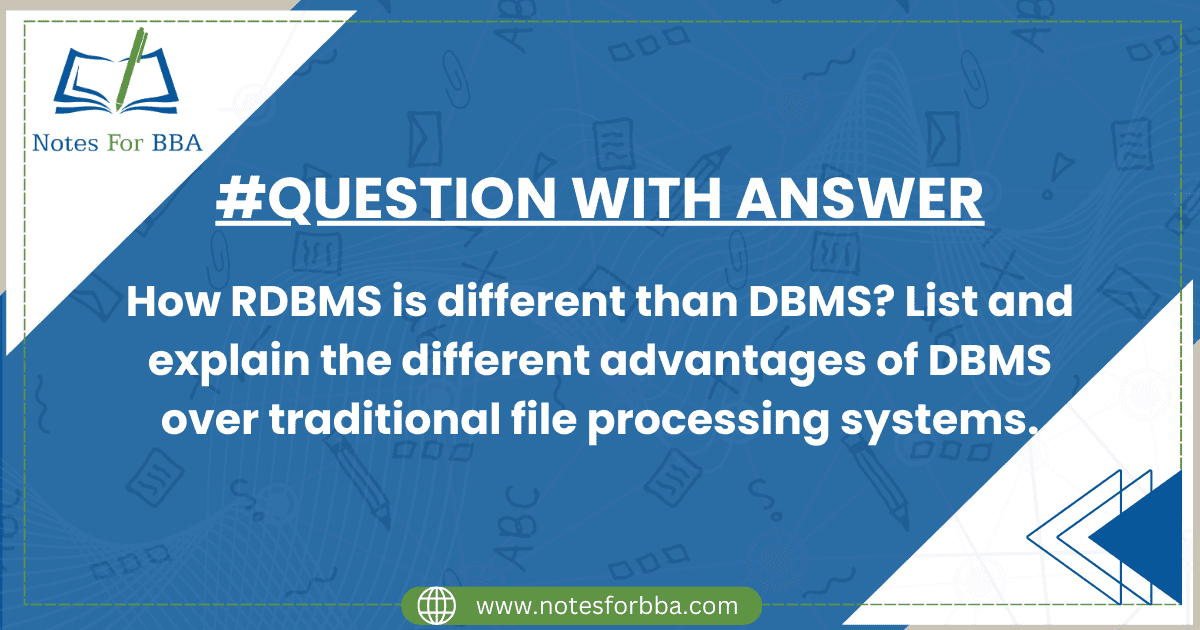The difference Between DBMS and RDBMS,
| Feature | DBMS | RDBMS |
|---|---|---|
| Full Form | Database Management System | Relational Database Management System |
| Data Storage | Stores data in files. | Stores data in tables (rows and columns). |
| Data Relationship | No relationships between data. | Uses relationships (primary keys, foreign keys). |
| Data Integrity | Does not enforce constraints strictly. | Enforces data integrity with constraints. |
| SQL Support | May not support SQL fully. | Fully supports SQL for data operations. |
| Security | Limited security features. | Provides advanced security (authentication, roles). |
| Scalability | Suitable for small systems. | Handles large data and complex systems easily. |
| Examples | File-based systems like XML or JSON storage. | MySQL, PostgreSQL, Oracle Database. |
Advantages of DBMS (Database Management System) over traditional file processing System
1. Reduces Data Redundancy
In DBMS, data is stored in one central database, so the same data is not repeated in multiple places. This saves storage space and avoids duplication.
2. Improves Data Consistency
Since data is stored centrally, any update made to the database is reflected everywhere. This ensures that all users see accurate and consistent information.
3. Enhances Data Security
DBMS provides features like user authentication and access control. Only authorized users can view or modify the data, which keeps the database secure.
4. Enables Data Sharing
Multiple users can access the database at the same time without conflicts. For example, employees in different departments can use the same database to access relevant data.
5. Supports Backup and Recovery
DBMS automatically backs up the data and allows recovery in case of system failures, minimizing the risk of losing important information.
6. Simplifies Data Access with Queries
DBMS uses query languages like SQL, making it easy to search, update, and manage data without needing complex programming.
7. Improves Performance
With features like indexing and optimized searching, DBMS allows fast retrieval of data, even in large databases.
8. Maintains Data Integrity
DBMS ensures that the data entered into the system follows rules and constraints, like avoiding duplicate entries or ensuring valid relationships between data.
9. Supports Concurrency
DBMS allows multiple users to work on the same database simultaneously without issues like data corruption.
10. Scalability and Flexibility
DBMS can handle large amounts of data and adapt as the organization’s needs grow, making it suitable for small or large-scale systems.
In summary, DBMS makes managing data easier, more secure, and more efficient, which is why it is widely used in businesses and organizations.

